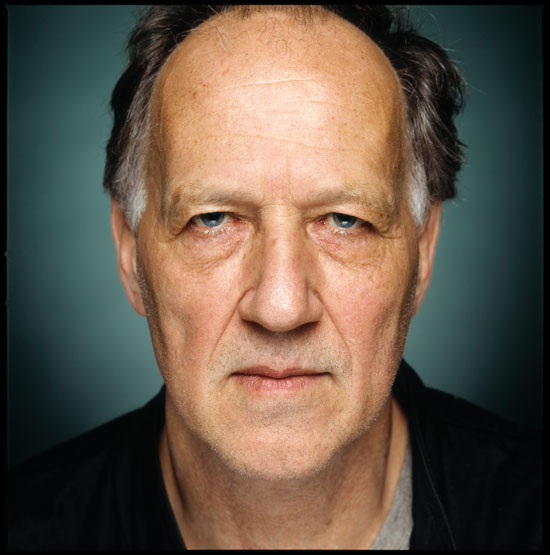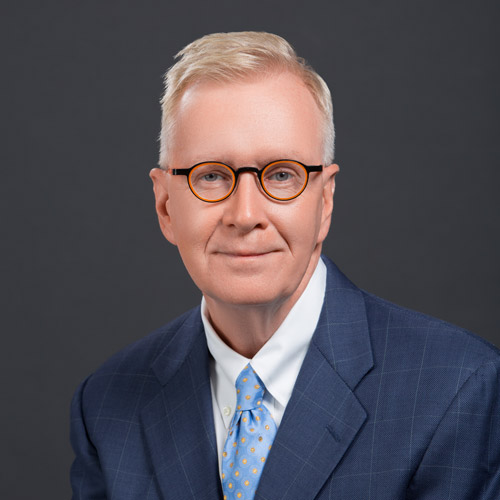Filmmaker Werner Herzog to Reflect on His Career Tonight
Talk with CAS professor about memorable stories and legendary films, followed by Q&A

Werner Herzog, who has made more than 70 feature films, documentaries, and television shows in a career spanning more than 50 years, will discuss his career in a conversation at the Tsai Performance Center Monday, March 25. Photo by © Robin Holland/CORBIS OUTLINE/Corbis via Getty Images
For more than half a century, Werner Herzog has been one of the world’s most iconoclastic filmmakers, making the movies he wants to make, where he wants to make them (he’s said to be the only feature-film director to have shot on all seven continents), and how he wants to make them (he eschews storyboards, preferring to let his imagination dictate on set how a film plays out).
Herzog’s output is astonishing: more than 70 feature films, documentaries, and television projects. So is his versatility. His subjects range from a conquistador’s search for El Dorado, the land of gold (1972’s Aguirre, the Wrath of God) to an obsessive rubber baron determined to build an opera house in the Peruvian jungle (1982’s Fitzcarraldo) to volcanoes (2016’s Netflix film Into the Inferno) to the existential consequences resulting from the internet (2016’s Lo and Behold: Reveries of a Connected World).
The stories about the 76-year-old filmmaker are as famous as his films. He once placed an entire cast under hypnosis (for his 1976 feature film Heart of Glass) to achieve the somnambulistic trance he was looking for. He spent two years figuring out how to lug a 320-ton steamship through the Amazon jungle while shooting Fitzcarraldo. He told mercurial actor Klaus Kinski he would shoot him if he followed through on a threat to walk off a film set. He nearly died from malaria. And he made good on a promise to eat his shoe if documentary filmmaker Errol Morris, then a young film student, would make the film he was always talking about (1978’s Gates of Heaven, a documentary about the pet cemetery business).

Herzog will discuss his colorful life and distinguished career Monday night in a conversation at the Tsai Performance Center titled Werner Herzog: Every Man for Himself and God against All, moderated by Herbert Golder, a College of Arts & Sciences professor of classical studies and a filmmaker who has collaborated with Herzog on numerous projects. The event is part of the Kilachand Honors College Co-curricular Events series. The conversation is sold out, but there may be last-minute cancellations, so those without a ticket are urged to arrive early to try to score a seat.
“Werner Herzog is one of the great humanistic visionaries of our time, working in the single most powerful and pervasive myth-making media we possess,” Golder says.
The following day, Herzog will join a group of BU students for a breakfast Q&A moderated by James Johnson, a CAS professor of history, at the Photonics Center. A limited number of tickets are still available and can be reserved through Eventbrite. His appearance marks the second installment in BU’s new annual series, “Conversations in the Arts & Ideas,” which began last year with a conversation with author Zadie Smith.
BU Today spoke with Herzog about his career, his thoughts on contemporary films and social media, and the skills necessary to be a great filmmaker. The interview has been edited and condensed for clarity.
BU Today: You grew up in an isolated mountain village in Bavaria. When did you see your first film?
Herzog: I was already 11, and a traveling projectionist came to our one-room schoolhouse and we saw two films that were screened on a bed sheet. They didn’t impress me. They were lousy films. One was about Eskimos building an igloo. I didn’t think the filmmakers did a good job.
At what point did you decide to become a filmmaker?
When I was 15 or 16. It came to me naturally. I knew I had to make films. I was attending Gymnasium [high school] in Munich and the school had a classical bias. We had Latin and ancient Greek. But I started to watch movies like Dr. Fu Manchu and Zorro with my friends. It came to me naturally. I knew that I would make films and that they’d be better than the others.
Where do you get inspiration for your films?
They come at me with great vehemence. I instantly recognize that an idea is so big. There is no way out. You don’t have any choice.

You have embraced new technology. You now shoot and edit all of your films digitally. Has that changed how you work?
It’s made making a film faster and less expensive. That’s all. Deep in my heart, I’m still a man of celluloid, although I don’t use it anymore.
You have a reputation for working quickly—you say you typically complete a screenplay in four or five days. And you’ve never brought in a film over budget.
It’s one of the things that has to do with the vehemence with which something comes at me. I see an entire film as if I was in the screening, so it’s very easy to write the screenplay. And even though I shoot digitally, I’m very cautious in shooting too much material. I shoot what I need for the screen and I shoot very, very small amounts of footage. Young filmmakers come to me sometimes and they are proud they’ve shot 450 hours of footage, and that’s when my heart sinks. I tell them, “You probably didn’t know what you were doing. You must have been clueless.”
I tell them, “We are not garbage collectors, we are filmmakers.”
You are a self-taught filmmaker. What advice do you have for aspiring directors?
I’m very distrustful of film schools. I think what you have to know about filmmaking you can learn in a week. All the rest, nobody can teach you. You need to have self-reliance. You need to be fearless and willing to take initiative.
You’ve also talked about how important it is for filmmakers to read. Can you elaborate on that?
Nobody reads enough anymore. Everyone is on Twitter and Facebook. Students do not read enough anymore. Reading is a requisite for anyone who tries to make films about the world.
You’re not on social media and don’t own a cell phone, even though you’ve embraced digital filmmaking. Why?
I see people who are too much into social media, and there is something that doesn’t look right. There is no longer any discretion. Everything is in the public—even the murderous attacks in New Zealand are live-streamed for the rest of the world. That’s the ultimate extreme of it. But young people are living secondhand, artificial sorts of relationships. They are quasi-friendships, quasi-interactions. The existential solitude is increasing in the same proportion. Our existential solitude is growing deeper. You have 200 likes to something you posted on the internet and it makes you solitary. You have 2,000 likes and it makes you 10 times more solitary.
As an artist, what do you believe constitutes a successful film?
I’m not an artist. I’m a soldier. When I’m with an audience, and they don’t know I’m sitting with them—which hardly ever happens—and I notice that one or two of them are not alone anymore, then I feel I have achieved a lot.
Werner Herzog will discuss his film career in a conversation with Herbert Golder, a CAS professor of classical studies, titled Werner Herzog: Every Man for Himself and God against All, Monday, March 25, at the Tsai Performance Center, 685 Commonwealth Ave., at 7 pm, followed by a Q&A. The event is sold out, but those without a reservation are encouraged to arrive early and stand in line for last-minute cancellations. The event is sponsored by the Dean of Arts & Sciences, Kilachand Honors College, the BU Center for the Humanities, the Office of the Provost, the BU Arts Initiative, the Elie Wiesel Center for Jewish Studies, the CAS Core Curriculum, the BU Alumni Association, and the NEH Distinguished Teaching Professorship.
Herzog will meet with students at an informal breakfast discussion of his work on Tuesday, March 26, in the Photonics Center Colloquium Room, 8 St. Mary’s St., from 9 to 10:15 am. A limited number of seats are still available; register through Eventbrite here.

Comments & Discussion
Boston University moderates comments to facilitate an informed, substantive, civil conversation. Abusive, profane, self-promotional, misleading, incoherent or off-topic comments will be rejected. Moderators are staffed during regular business hours (EST) and can only accept comments written in English. Statistics or facts must include a citation or a link to the citation.